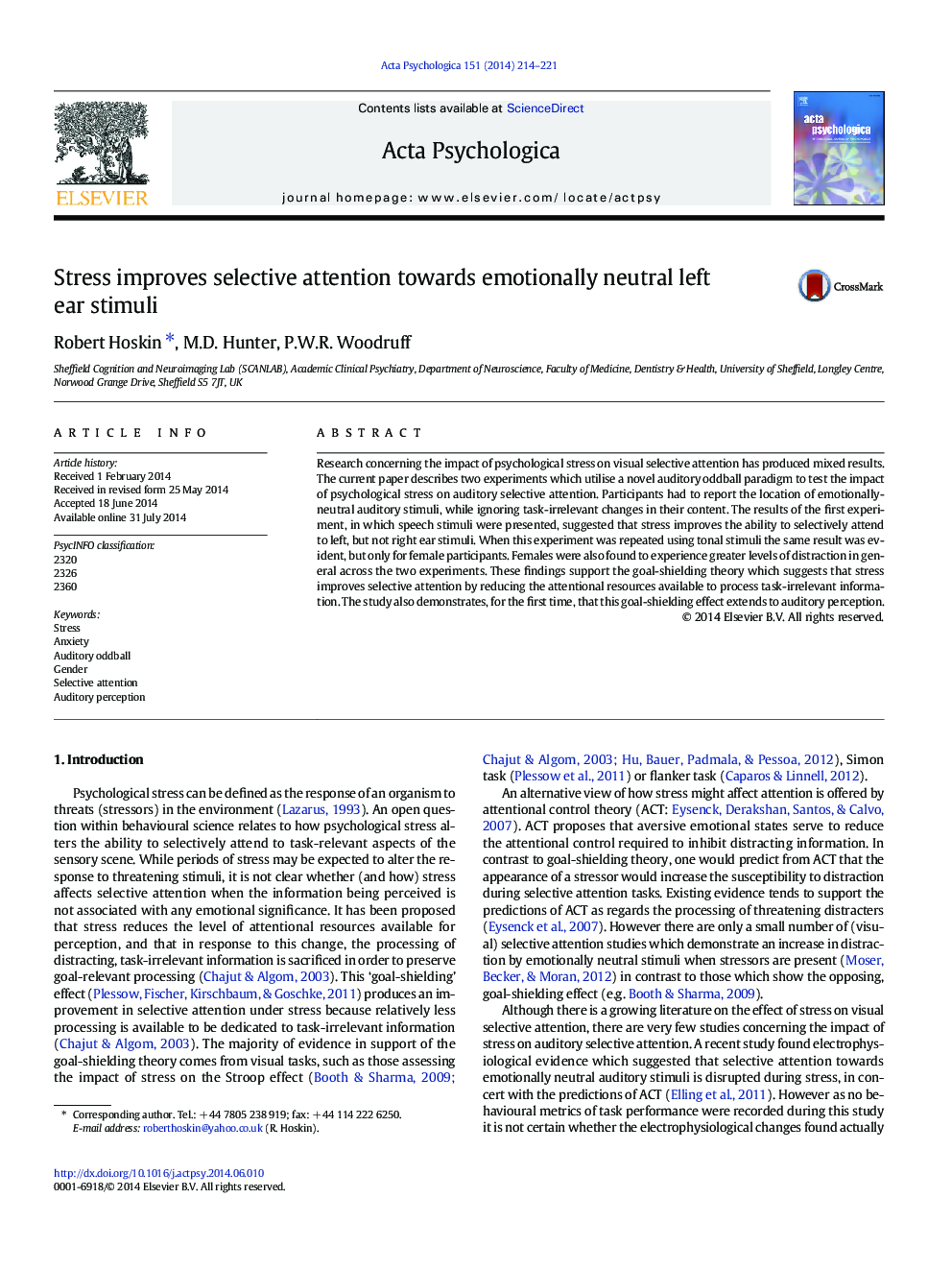| Article ID | Journal | Published Year | Pages | File Type |
|---|---|---|---|---|
| 7277601 | Acta Psychologica | 2014 | 8 Pages |
Abstract
Research concerning the impact of psychological stress on visual selective attention has produced mixed results. The current paper describes two experiments which utilise a novel auditory oddball paradigm to test the impact of psychological stress on auditory selective attention. Participants had to report the location of emotionally-neutral auditory stimuli, while ignoring task-irrelevant changes in their content. The results of the first experiment, in which speech stimuli were presented, suggested that stress improves the ability to selectively attend to left, but not right ear stimuli. When this experiment was repeated using tonal stimuli the same result was evident, but only for female participants. Females were also found to experience greater levels of distraction in general across the two experiments. These findings support the goal-shielding theory which suggests that stress improves selective attention by reducing the attentional resources available to process task-irrelevant information. The study also demonstrates, for the first time, that this goal-shielding effect extends to auditory perception.
Related Topics
Life Sciences
Neuroscience
Cognitive Neuroscience
Authors
Robert Hoskin, M.D. Hunter, P.W.R. Woodruff,
